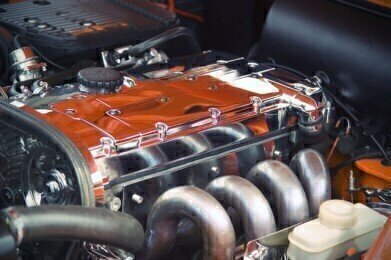Fuel for Thought
An Introduction to Olefins
Mar 21 2019
Olefin content is an important factor in fuel production. But what exactly are olefins? In short, they’re an unsaturated hydrocarbon. Of course, there’s more to the story than that alone. Read on as we take a closer look at olefins – where they come from, what they’re made up of and why they’re important.
Chemical make-up of olefins
Olefin is a compound comprising hydrogen and carbon, with at least one pair of carbon atoms. Those atoms are linked by a double bond, which – along with the hydrogen and carbon content – makes them an unsaturated hydrocarbon.
Also known as alkene, olefins can vary in the number of double bonds per molecule, making them mono-olefins, diolefins, triolefins and so forth. They can also be categorised as either cyclic or acyclic. Cyclic olefins have a double bond between carbon atoms which makes up a closed ring of compounds. On the other hand, acyclic olefins form an open-chain group.
Where do olefins come from?
One of the earliest processes where olefins were produced came in the early 1900s through thermal cracking. This technique uses high temperatures and high pressure to break up large hydrocarbons into smaller compounds. They can also be produced by other forms of cracking, such as hydrocracking and fluid catalytic cracking.
Why olefins matter
Both petrol and diesel contain several different hydrocarbon molecules. Paraffins, olefins and aromatics account form most hydrocarbons in petrol, while diesel is mostly paraffins, aromatics and naphthenes.
Paraffins can improve the ignition quality of fuels, but can have low-termperature resistance. On the other hand, aromatics have high octane numbers – meaning the fuel can be compressed more before igniting – but they can be bad for the cleanliness of engines.
Similarly, a high level of olefins can be tricky for engine cleanliness as a high level of olefins can accumulate and form deposits in fuel systems. That’s why olefin content in refined fuels needs to be kept low – as will be explored in the e-learning session ‘Determining Olefin and Conjugated Diolefin Content in Gasoline is Fast, Accurate, and Repeatable with GC-VUV’.
Find out more
If you want to find out more about petroleum, refining and environmental technologies, be sure to check out PEFTEC 2019. Registration is now open for the conference, with internationally experts from all areas of the petroleum industry.
Digital Edition
PIN 25.4 Aug/Sept
September 2024
Analytical Instrumentation - Novel and Rapid LSC method for the analysis of biogenic carbon in fuels Measurement and Testing - Matrix evaluation on the Xplorer-V with Vectra autosampler accordi...
View all digital editions
Events
Nov 04 2024 Abu Dhabi, UAE
Nov 04 2024 Kigali, Rwanda
Nov 05 2024 Toronto, Canada
Nov 05 2024 Paris, France
Nov 12 2024 Cologne, Germany



















